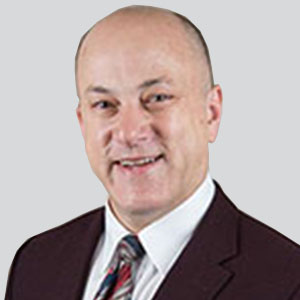 Jeffrey Bennett, MD, PhD
Jeffrey Bennett, MD, PhDGenentech has announced that the FDA has approved satralizumab for the treatment of adult patients with anti-aquaporin-4 (AQP4-IgG) antibody positive neuromyelitis optica spectrum disorder (NMOSD)—only the second targeted treatment for this population and the first eligible for at-home administration.1Marketed under the name Enspryng, the humanized monoclonal antibody targets and inhibits interleukin-6 receptor activity, which is thought to play a key role in the inflammation observed in NMOSD. Novel recycling technology allows for a longer duration of antibody circulation, translating into a subcutaneous dosing regimen of every 4 weeks after an initial loading dose.
“For people with NMOSD, relapses can cause devastating, irreversible and disabling neurological effects,” Jeffrey Bennett, MD, PhD, professor of neurology and ophthalmology at the University of Colorado, and an investigator for the satralizumab pivotal clinical trials, said in a statement. “Having an approved therapy that can be administered subcutaneously in the home and has demonstrated an impact on the frequency of relapses is an important advancement for patients.”Satralizumab’s approval was based on robust data from the phase 3 SAkuraStar (NCT02073279) and SAkuraSky (NCT02028884) clinical trials, which combined included more than 170 patients who were randomly assigned to receive satralizumab 120 mg or placebo. In SAkuraSky, patients added treatment to baseline immunosuppressive therapy.All patients received a loading dose of the study drug at baseline, week 2, and week 4, followed by 4-week treatment intervals. The primary end point in both studies was time to protocol-defined relapse. Notably, both studies included a population of patients who were AQP4-IgG antibody positive and negative to accurately reflect clinical practice.In SAkuraStar, 30% of patients treated with satralizumab monotherapy experienced relapse compared with 50% of those who received placebo (HR 0.45; 95% CI, 0.23–0.89; P =.018).3 Among those who were AQP4-IgG antibody positive, a 74% reduction in relapse risk was observed. In the overall satralizumab-treated population, 76.1% and 72.1% were relapse-free at 48 and 96 weeks, respectively, compared with 61.9% and 51.2% with placebo. Data from the AQP4-IgG seropositive subgroup showed that 82.9% and 76.5% were relapse-free at 48 and 96 weeks compared with 55.4% and 41.1% with placebo, respectively.


